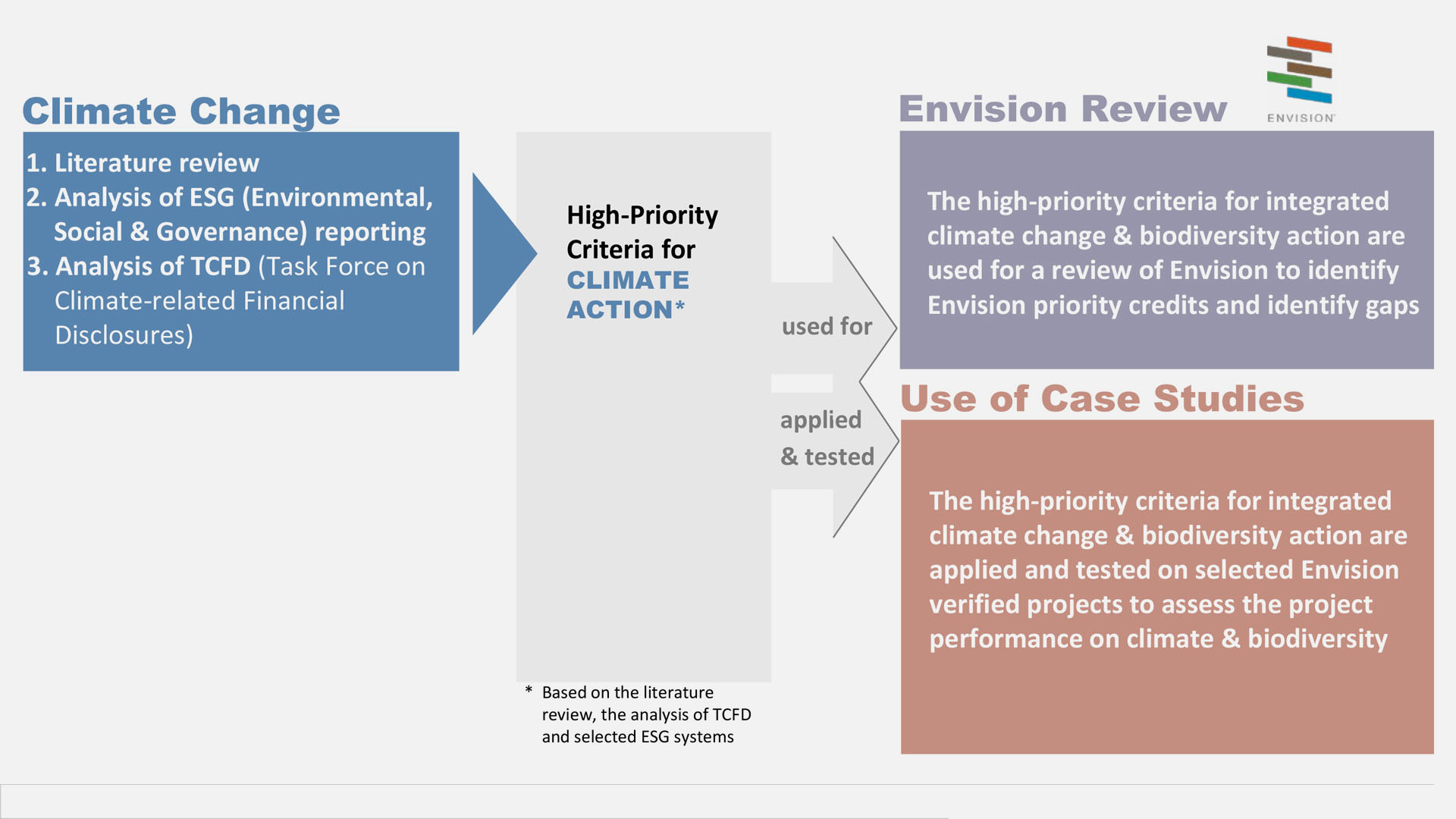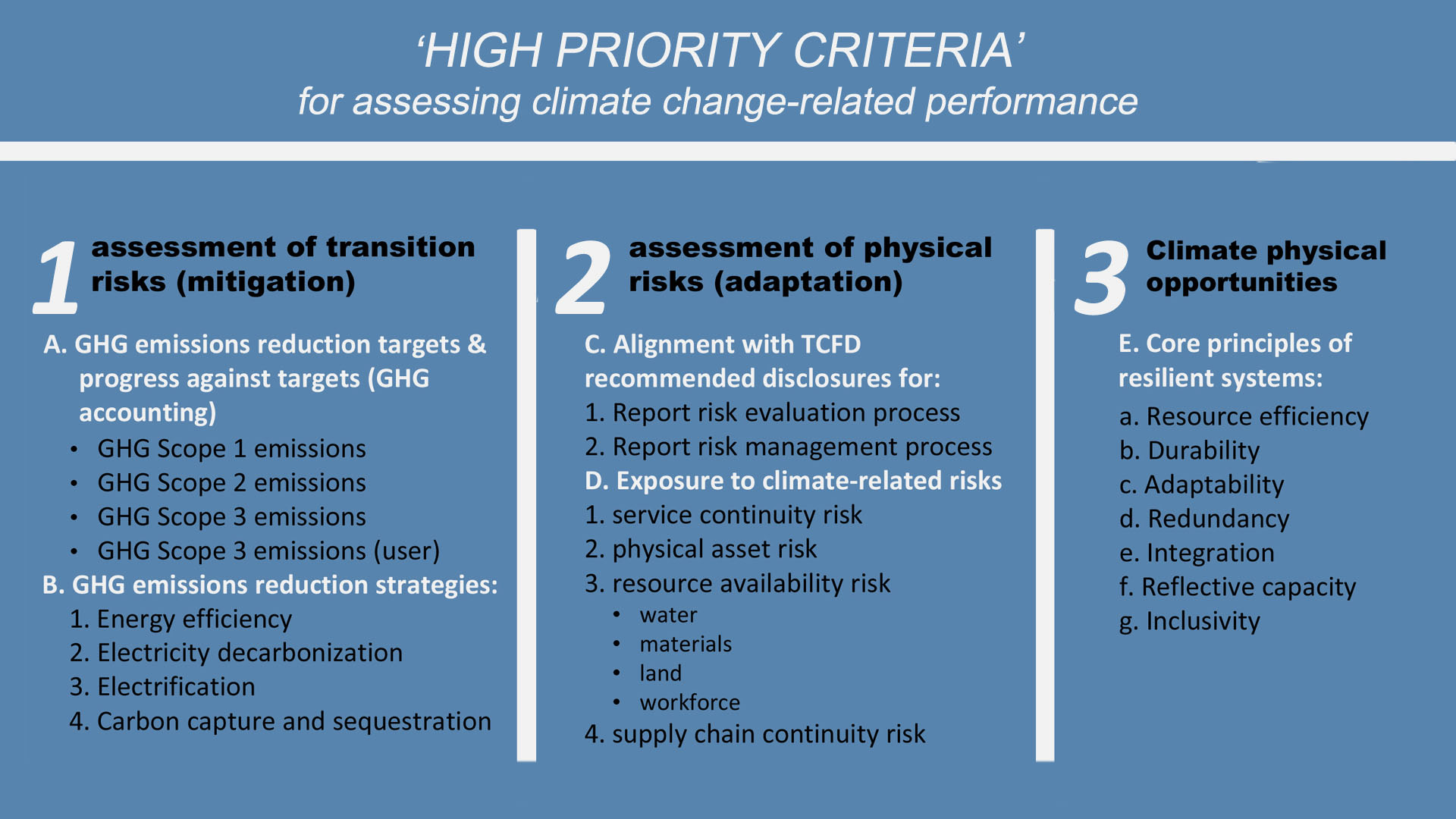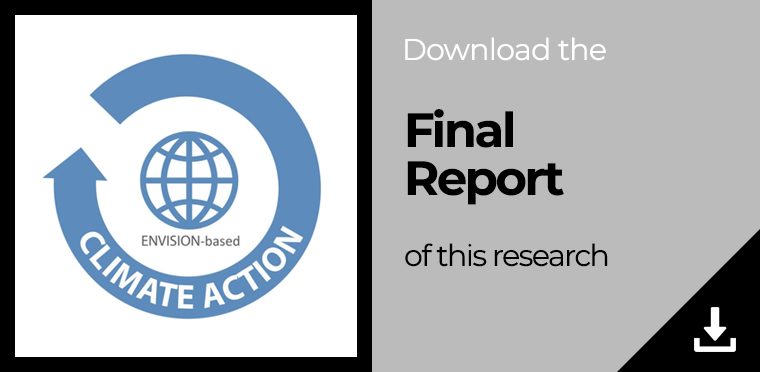This research aimed to assist the Envision framework in adapting and contributing to the ongoing global discourse and research on climate change and the urgency of channeling investments in climate action projects.
The Zofnass Program focus for 2020-2021 consisted of research to help support investors for funding projects that address climate change through mitigation and adaptation. A dual approach is proposed to address the importance of climate change mitigation and adaptation while supporting investors on decision-making or selecting projects to invest in.
The research builds upon the Envision V3 framework and studies how Envision can respond to the current urgency and investors demand for climate-friendly projects. To bring out these high-priority criteria, a specific ‘filtering’ of Envision credits has been developed. The filtering follows the research methodology of the Lifecycle Sustainability tool, developed in collaboration with the National Research Council of Canada (NRC) geared for the early decision-making process.
Priority credits and strategies were considered across the full extent of their related impacts to provide a stronger case of why investors should choose to fund these projects and the multiple benefits and trade-offs of such decisions. This holistic approach for climate change avoids the limitations of monocriteria or two-or-three criteria analysis of projects.
Key related research areas were highlighted, and current climate-action goals were identified based on a literature review (a) on climate change and (b) the investors’ demand for climate action. The analysis of selected established ESG (Environmental, Social, and Governance) standards – the primary tool for investor knowledge on companies’ sustainable performance- and climate-related reporting frameworks like the Taskforce for Climate-related Financial Disclosures (TCFD) recommendations provides additional insight on how climate-related performance is defined and communicated to investors.
Based on the findings of the literature review and the ESG systems analysis, key criteria for assessing climate-related performance were identified and used for a targeted analysis of Envision. The analysis focused on (a) how Envision assesses project performance in climate change mitigation and adaptation, (b) if Envision is in line with current trends and methods and (c) if the climate-related risks and opportunities of projects for investors are adequately captured.
The findings of the review process were synthesized as follows:
• identification of gaps in Envision’s climate-related assessment of projects and guidance to project teams,
• potential recommendations to Envision on how to address the identified gaps and enhance its climate-related assessment and guidance, and
• prioritization of 26 Envision credits to assist in selecting the right projects for climate action, which is critical in the current climate emergency.
Research team
Program & Research Director
Prof. Spiro Pollalis, pollalis@gsd.harvard.edu
Research Associates
Evgenia Hagistavrou, genhagistavrou@gmail.com
Angela Kouveli
Dimosthenis Lappas
Eleonora Marinou
Olga Tzioti
Judith Rodriguez
Further resources
Research team
Program & Research Director
Prof. Spiro Pollalis, pollalis@gsd.harvard.edu
Research Associates
Evgenia Hagistavrou, genhagistavrou@gmail.com
Angela Kouveli
Dimosthenis Lappas
Eleonora Marinou
Olga Tzioti
Judith Rodriguez




